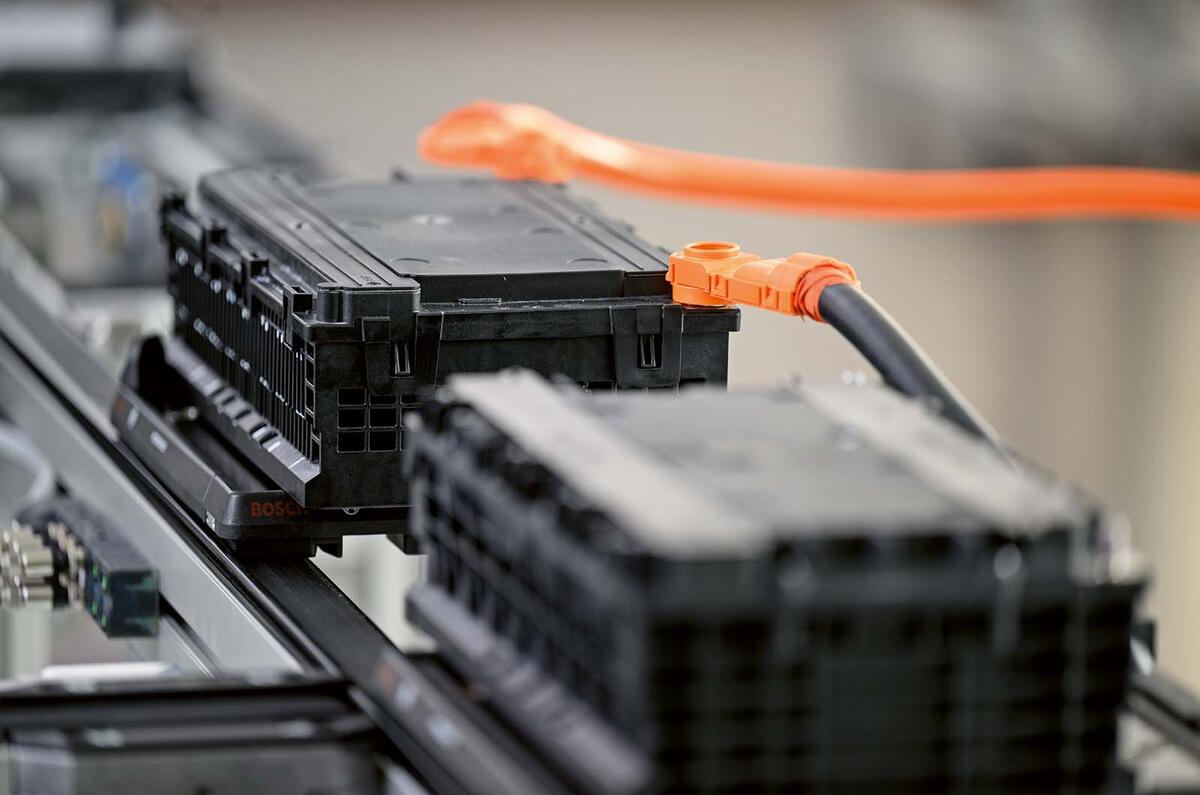With the steady rise in EVs on the roads globally, it won’t be too long before the world is awash with large lithium ion battery packs that are at the end of their lives and in need of disposal.
Processes are already in place to recover a large proportion of the active ingredients of batteries. Batteries being fitted to EVs today will have reached the end of their lives in 10-15 years, and research suggests that by 2030 Europe will be recycling 420,000 tonnes of battery material a year.
That may not be as straight-forward as it seems. How, for example, do you get to grips with dismantling powerful battery packs on a large scale that are partially charged and potentially lethal?
Bosch Rexroth has developed the kit needed to do this and has supplied Battery Lifecycle Company with a system to discharge then dismantle the batteries in a fully automated process.
Starting this summer, when batteries from a variety of manufacturers arrive at the company’s site at Magdeburg in central Germany, they will be deep discharged, ready for shredding.
Battery components weighing up to 150kg are carried through the processing unit at a rate of 18 metres per minute, which, according to Bosch, equates to eight lithium ion batteries being discharged in less than 15 minutes.
It’s quite a step up from deep discharging the batteries manually, which takes around 24 hours. In contrast, the automated process can recognise different battery designs, minimising the risk of short circuits and fires, then deep discharge modules in minutes.
What makes the new method particularly appealing is that the energy being sucked out of the batteries is used to help power the recycling system in a circular process.
Once the battery modules are fully discharged, they are chemically deactivated to ensure that no residual energy or risk of shock exists. The final step is to shred the battery and recover and recycle lithium, cobalt and nickel.
Some 95% of a battery’s chemical constituents can be recycled in this way and reused in battery production. Will lithium ion still be the dominant technology for EV batteries in a few years’ time and will Bosch’s efforts be worth it?
Porsche expects it will, although with a shift away from the 6:2:2 ratio of nickel, cobalt and manganese currently most frequently used in European battery technology, towards more nickel and less cobalt and manganese.
Porsche engineers also think there’s plenty more to come from the existing technologies as the design of anodes and cathodes continues to evolve. In the medium term, Porsche expects new anode chemistry and more dense packaging of the cells to boost range to over 800 miles from a single charge (in the context of its own cars) and charge times from 5% to 80% to fall to 15 minutes.
Eventually – perhaps with solid-state technology – that could reduce still further to the length of a conventional fuel stop.




Add your comment